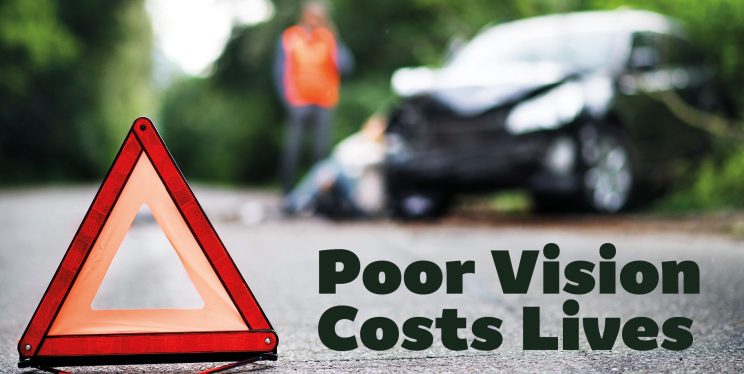Keeping Our Roads Safe: Is Your Vision Roadworthy?

As the clocks go back and darker evenings set in, it’s important to think about how the change in light affects all of us on the road. We talk a lot about making sure our cars are roadworthy – checking tyres, brakes, and lights – but how often do we stop to think about whether our vision is roadworthy too?
That’s the focus of a national campaign called “Operation Dark Nights”, running from 27 October to 9 November 2025. It’s all about reminding drivers of their legal and personal responsibility to make sure their eyesight meets the required standards every time they get behind the wheel.
Why it matters
Ninety per cent of the information we rely on to drive safely comes from our eyes. As the nights draw in, many of us spend more time driving in the dark – and that’s when problems with vision can become more noticeable. Low light can make it harder to focus, and glare from oncoming headlights or streetlights can be dazzling. These are early signs that your eyesight might need checking.
Making sure your vision is up to standard isn’t just a legal requirement – it’s a way of protecting yourself and everyone else on the road.
How to keep your vision roadworthy
Here are a few simple ways to make sure you’re seeing clearly every time you drive:
- Test your vision regularly by reading a car number plate from 20 metres away – about five car lengths.
- Have your eyes tested at least once every two years, or sooner if you notice a change.
- If you’ve been prescribed glasses or contact lenses for driving, always wear them.
- Keep your lenses clean and scratch-free – even small marks can make glare worse.
- Avoid tinted lenses or sunglasses when driving at night.
- Keep your windscreen clean, inside and out, and check your lights and wipers.
If you find it harder to see at night or notice more glare than usual, don’t ignore it – book an eye test. It’s quick, simple, and could prevent a crash.
The consequences of unsafe vision
Driving with vision that falls below the legal standard isn’t just risky – it’s against the law. If you’re stopped by the police and can’t read a number plate from 20 metres away, you could face a fine of up to £1,000, three penalty points, or even have your licence revoked immediately under what’s known as Cassie’s Law.
A shared responsibility
We all have a role to play in keeping our roads safe. I’m supporting this campaign because something as small as checking your eyesight can make a real difference – it can save lives. As we head into the darker months, let’s all take a moment to make sure our vision, like our vehicles, is fit for the road ahead.
For more information about the legal eyesight standards and how to keep your vision roadworthy, visit VisionAndDriving.info.
